Introduction
Table of Contents
Daily skincare is more than just cleansing and moisturizing. One of the most mindful and protective steps is applying sunscreen every single day. People often believe it is only needed on hot summer days, but that is not true. Even during overcast days with UV exposure, harmful UV rays still reach your skin and quietly damage it. The habit of using a dermatologist-recommended sunscreen daily is not only about beauty; it is a conscious step toward long-term health and mindful living. By protecting yourself now, you reduce the risk of painful sunburn, visible hyperpigmentation, and even serious issues like skin cancer later in life.
The United States has some of the highest rates of skin cancer, yet many still ignore the importance of daily sun protection. If you think a moisturizer alone will save your skin, think again. Sunscreen is like an invisible shield, one that blocks UVA and UVB protection rays from breaking down your skin’s natural defenses. A mindful skincare routine that includes sunscreen is a promise to your future self, where beauty, safety, and health walk hand in hand.
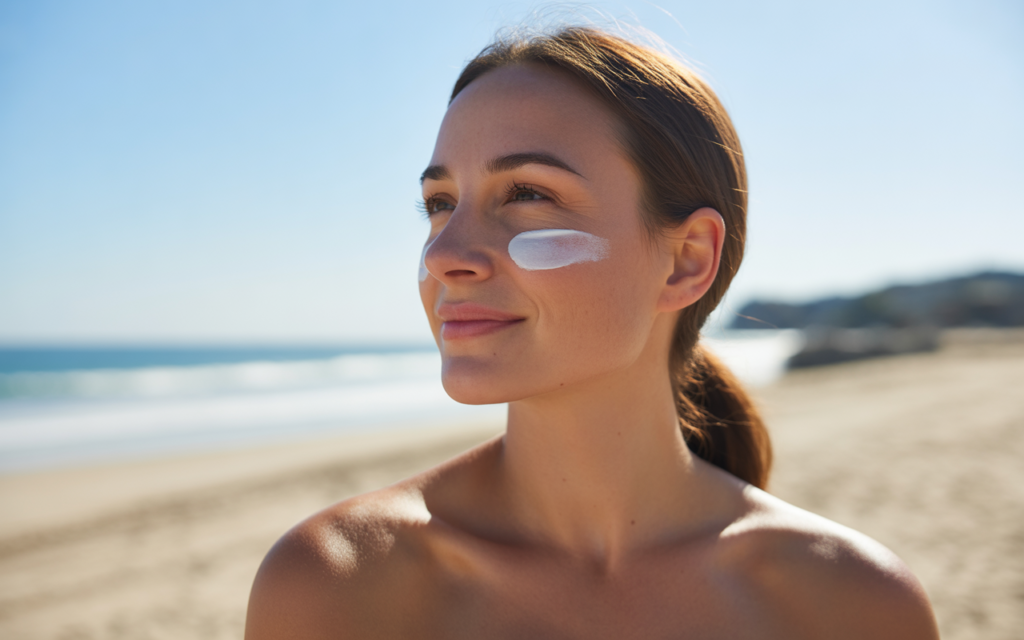
Why Sunscreen Matters for Your Skin Health
When you step outside, your skin instantly meets invisible ultraviolet radiation from the sun. These UV rays have two types: UVA and UVB protection. UVA rays penetrate deep, causing collagen and elastin damage, which leads to wrinkles. UVB rays burn the outer layer, leaving painful sunburn that can scar. Both contribute to skin cancer, one of the fastest-growing cancers in the USA.
Daily sunscreen use builds a safety barrier between your skin and the environment. Even when you sit near a window or walk for a few minutes, exposure adds up. Mindful habits like applying broad-spectrum sunscreen lower risks and improve resilience. Protecting your skin is not vanity—it is mindful healthcare. When you use sunscreen and hydration together, your skin remains healthy, youthful, and naturally radiant.
Key Benefits of Sunscreen for Your Skin
One of the clearest benefits is reducing the risk of skin cancer. Scientists agree that regular use of broad-spectrum sunscreen lowers the chances of developing melanoma, the deadliest form. It also prevents painful sunburn, which damages cells even after a few hours in the sun.
Another mindful benefit is slowing premature skin aging. The sun breaks down skin proteins, leading to lines, wrinkles, and sagging. With sunscreen, you protect collagen and elastin damage from worsening. It also reduces stubborn melasma, hyperpigmentation, and redness conditions like rosacea or cutaneous lupus. A true anti-aging skincare routine always starts with sunscreen.
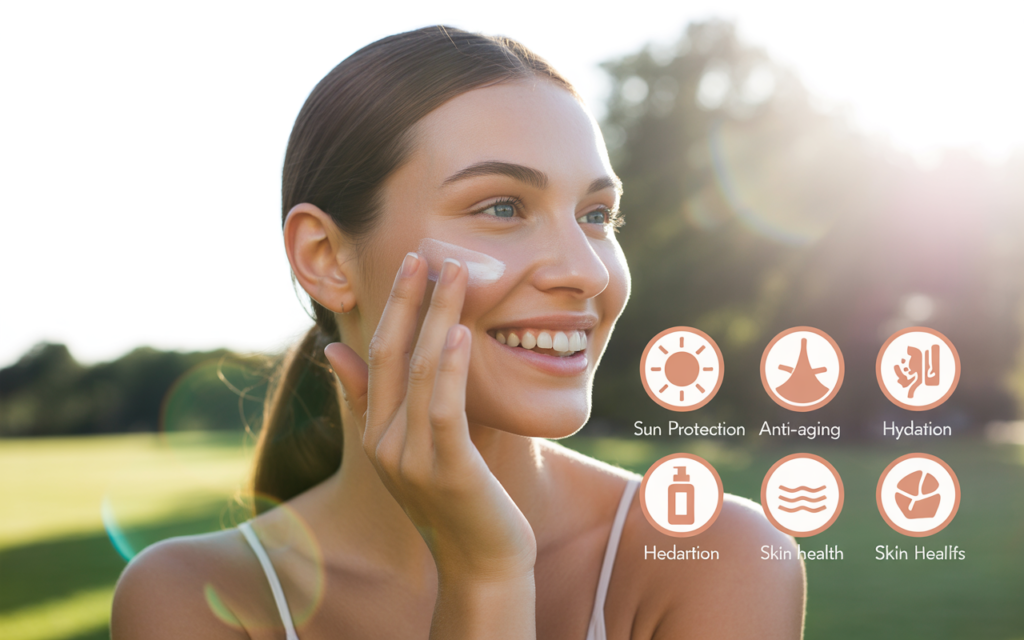
What is SPF, and how does it work?
Many people get confused about SPF (Sun Protection Factor). SPF is a measure of how well sunscreen protects against UVB rays. For example, SPF 30 means your skin will take 30 times longer to burn compared to unprotected skin. This makes SPF essential for mindful safety outdoors.
The debate of SPF 30 vs. SPF 50 is common. SPF 30 blocks about 97% of UVB rays, while SPF 50 blocks about 98%. The difference seems small, but for people with fair or sensitive skin, or those taking sun-sensitive medications, SPF 50 is a safer choice. Dermatologists stress consistency in reapplication more than the number itself.
Types of Sunscreens and Which One to Choose
There are two main categories: mineral sunscreen and chemical sunscreen. Mineral types, often made with zinc oxide or titanium dioxide, sit on top of the skin to reflect rays. They are also known as reef-safe sunscreen or coral reef-friendly sunscreen because they avoid harmful chemicals like oxybenzone and octinoxate. These are perfect for those with sensitive skin or children.
On the other hand, chemical sunscreen absorbs into the skin and neutralizes rays. They often feel lighter and blend better, making them a popular choice for everyday wear. If you have oily skin, choose a mattifying version. For dryness, look for formulas enriched with hyaluronic acid, ceramides, or vitamin E. For those needing the best sunscreen for sensitive skin, mineral formulas are recommended.
How to Apply Sunscreen Correctly
Knowing how to apply sunscreen properly is as important as choosing the right type. Experts recommend using about a teaspoon amount for the face and neck and a shot-glass amount for the body. Apply 15 minutes before sun exposure for maximum effectiveness.
Many people fail by missing spots like ears, neck, or the back of hands. Others rub too little, reducing protection. Following a sunscreen reapplication guide, reapply every two hours or sooner if swimming or sweating with a water-resistant sunscreen. Skipping reapplication is one of the most common sunscreen safety concerns.
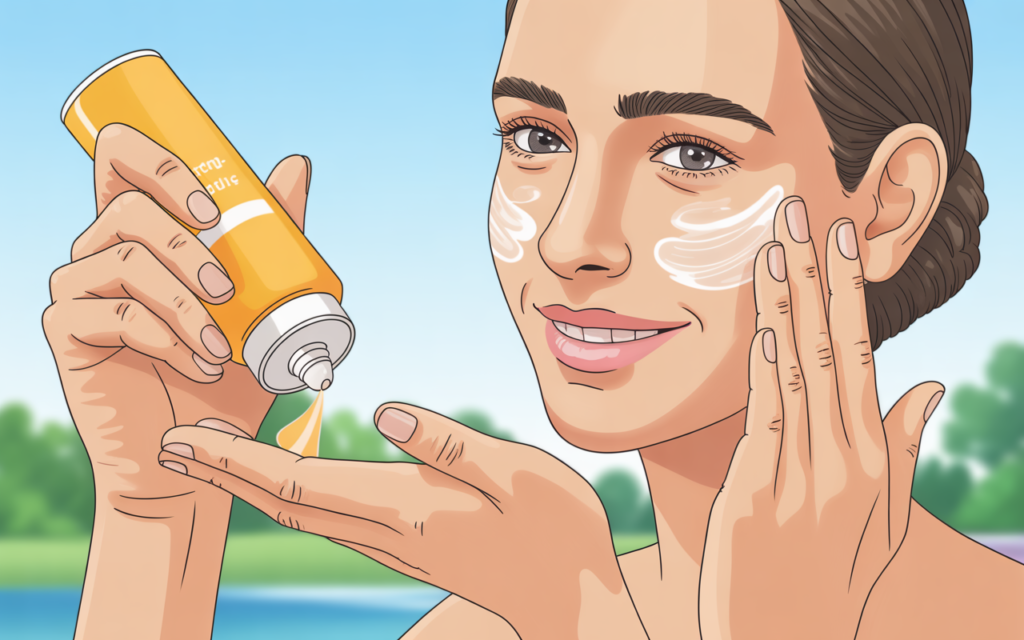
Best Sunscreen Lotions and Creams to Try
A trusted choice is NIVEA Sun SPF 50 Lotion, which offers strong UVA and UVB protection while being gentle enough to be sunscreen for kids and babies. It is also a water-resistant sunscreen, making it ideal for outdoor activities and beach trips.
Another excellent product is NIVEA UV Face Shine Control Cream SPF 50. This dermatologist recommended sunscreen controls oil, blends well, and does not leave a white cast, making it suitable as a sunscreen for dark skin tones. Choosing a reliable brand removes doubts about FDA sunscreen safety and helps you stay protected mindfully.
Other Ways to Protect Your Skin from UV Rays
While sunscreen is powerful, it works best with extra protection. Simple steps like using shade, hats, and sunglasses for protection lower overall exposure. Combining physical barriers with sunscreen reduces stress on your skin.
It is also important to practice UV index monitoring. Apps and weather updates help you know when rays are strongest. Even during an overcast day, UV exposure is still high enough to cause harm. These mindful strategies ensure balanced protection without fear.

Tips for Choosing the Right Sunscreen
When buying sunscreen, always check the sunscreen ingredients list. Look for “broad spectrum sunscreen” with UVA and UVB protection, and avoid expired products. Remember, a sunscreen expiration date means reduced effectiveness. Using old sunscreen is almost like not applying any at all.
Also, consider lifestyle. For beach trips, pick a reef-safe sunscreen. For everyday city wear, lightweight and hydrating options with aloe vera, panthenol, or vitamin E work well. Those with eczema or rosacea should choose natural vs. synthetic sunscreen carefully, often preferring mineral formulas for comfort.
Final Thoughts on Daily Sunscreen Use
Mindful skincare is about prevention, not just correction. Using sunscreen daily is a promise to care for yourself and your future. It protects from premature skin aging, painful sunburn, and serious diseases like skin cancer. Including sunscreen in your anti-aging skincare routine is a small habit with lifelong rewards.
As one dermatologist once said, “The best skincare investment is sunscreen. Everything else comes second.” By practicing daily sun protection, using dermatologist-recommended sunscreen, and making mindful choices, you secure not only your beauty but also your health. Start today, because your future skin will thank you.
Quick Reference Table: Sunscreen Essentials
| Category | Best Choice | Notes |
| SPF Level | SPF 30 vs SPF 50 | SPF 50 better for fair or sensitive skin |
| Type | Mineral sunscreen | Safer for sensitive skin and kids |
| Formula | Broad-spectrum sunscreen | Protects from both UVA and UVB |
| Lifestyle | Reef-safe sunscreen | Eco-friendly, avoids oxybenzone/octinoxate |
| Reapplication | Every 2 hours | Follow sunscreen reapplication guide |
FAQs
Benefits of sunscreen SPF 50
SPF 50 gives strong UVA and UVB protection, lowering risks of sunburn and skin cancer.
Benefits of wearing sunscreen on face everyday
Daily face sunscreen prevents premature skin aging, wrinkles, and hyperpigmentation.
Benefits of sunscreen lotion for skin
Sunscreen lotion shields your skin from ultraviolet radiation and helps maintain hydration.
Benefits of sunscreen lotion for glowing skin
Sunscreen lotion locks in moisture and prevents collagen and elastin damage, keeping skin radiant.
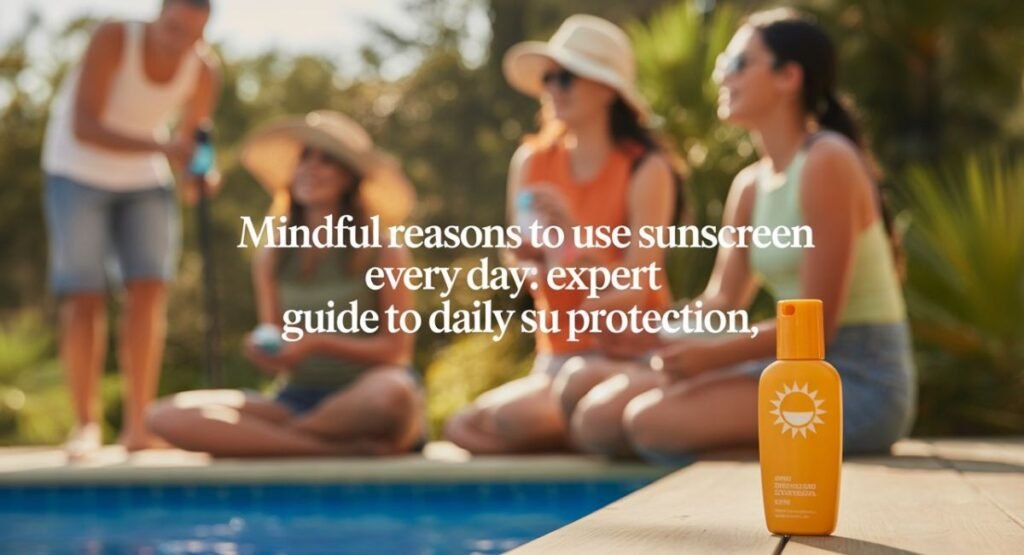
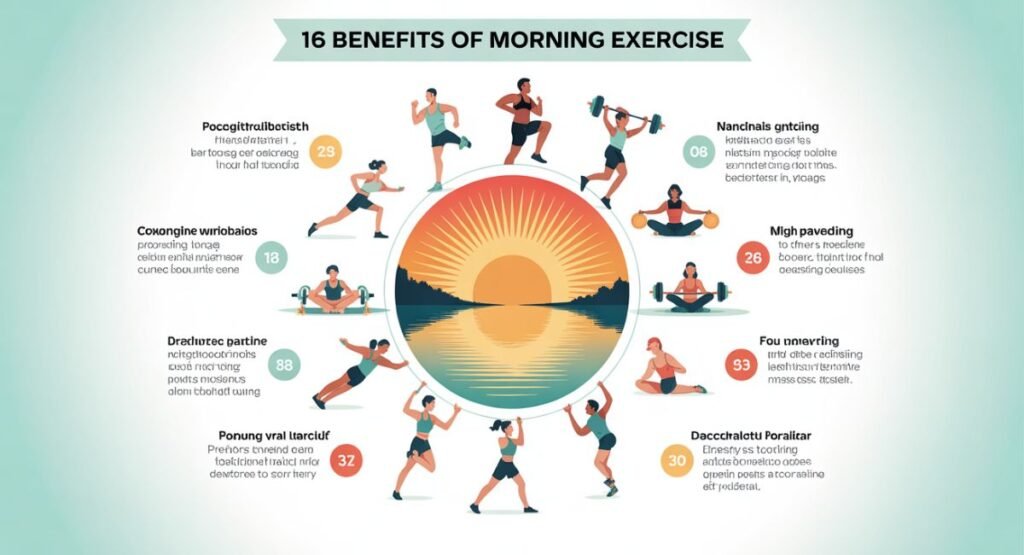


Pingback: Morning vs Night: When to Use Your Serum for Best Results